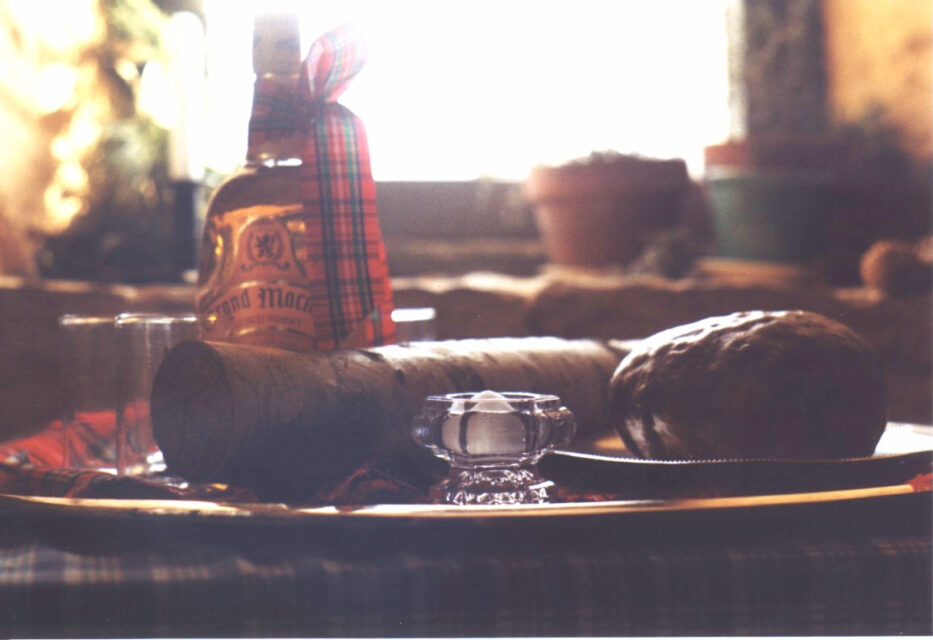
- This event has passed.

Event Details
Cost: $12
Hutchison House Museum
270 Brock StreetPeterborough, Ontario K9H 2P9 Canada + Google Map
1 (705) 743-9710
View Venue Website
Help us ring in the New Year at Hutchison House with a Hogmanay celebration from 1 to 3:30 p.m. on, January 1, 2024. Admission prices: adults $12.00; children $8.00; family rate $35.00 (2adults/2+ children). Athol Brose sold separately. This is a ‘drop-in’ affair. Space at the museum is limited and in order to accommodate visitors to this popular event and we would respectfully ask participants to keep the length of their visit as short as possible to avoid overcrowding. For more information call the museum at (705) 743-9710.
As with any festive occasion, Hogmanay includes the preparation of special food and beverages. At Hutchison House, on New Year’s Day, visitors will be treated to Scotch Black Bun, a rich mixture of currants, raisins, peel, spices and whisky, baked in a fine pastry dough, Clooty Dumpling or Duff, Scotch Eggs, Potted Salmon, cheeses, oatcakes, shortbread and Haggis.
Our first-footer will be “piped in” at precisely 1 p.m. January 1st with a rousing rendition of ‘Burns’ Address to a Haggis’ to follow shortly thereafter. Visitors will enjoy tours of the museum as well as samples of the taste of Scotland throughout the afternoon. Fiddle music, and the skirl of the bagpipe and drum will round out the day. Plan to drop in to wish new friends and old neighbours the best for the coming year.
The Scots have been celebrating Hogmanay since the 16th century. Before the Reformation, the Scots celebrated a wide range of festivals from Christian, Norse and Celtic traditions. At the time of the Reformation, the Church of England cancelled all festivals except the most important feast days and by the mid-16th century, the observation of many of these had been almost entirely abolished. Christian feasts were seen to incorporate and sanctify pagan rituals. The Scottish Kirk forbade the celebration of Christmas, and in 1647 its observance was forbidden by an Act of Parliament. The result was that the Scots focused on the celebration of the New Year – Hogmanay. By the 19th century, Christmas had been restored as a religious observance and Hogmanay continued as a time of merry-making.
Part of the preparation for the coming year involved putting one’s house in order. Debts were paid, the house was swept clean, clocks were wound, musical instruments were tuned, silver, brass and pewter were polished, clothes were mended, clean sheet were put on the beds, and anything borrowed was returned to its owner to ensure that all was in readiness when the new year arrived. Stray dogs were sent away, as they were thought to bring bad luck. Finally, the fire was piled high, the higher the flames, the greater the luck to come.
